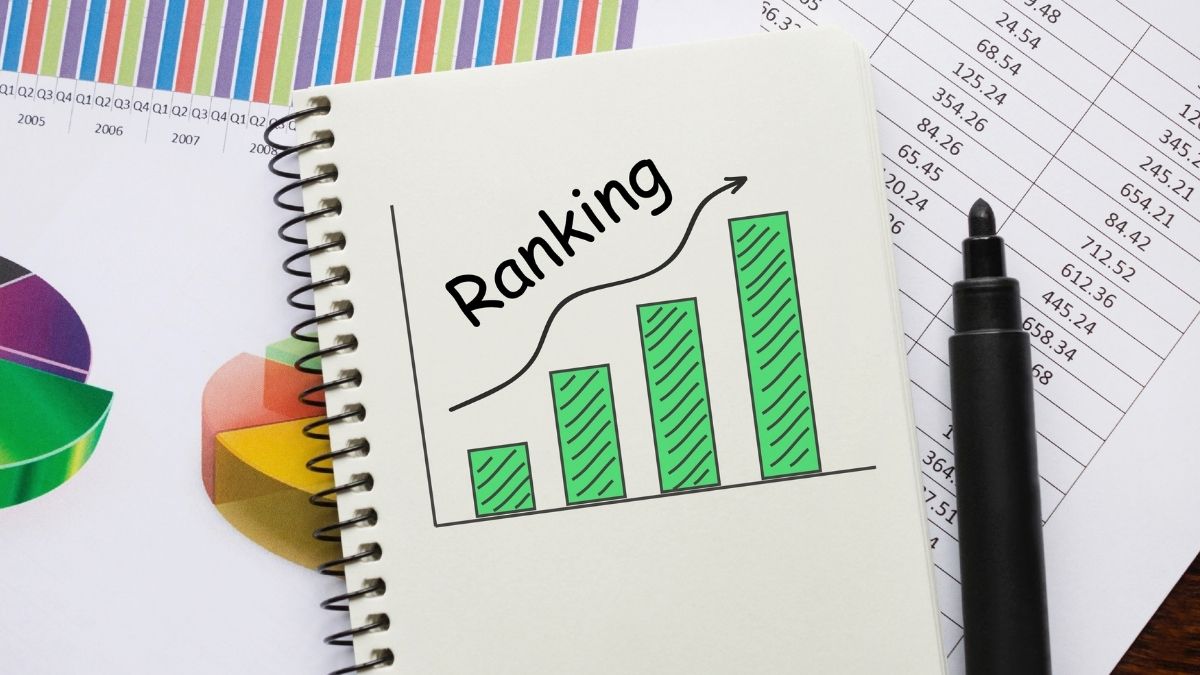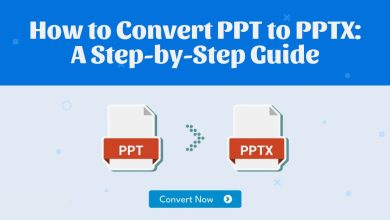
In SEO, you can’t throw a stone without hitting a link builder.
Links have always been an important part of search optimization since Google’s inception.
What about outbound links, though?
These are the hyperlinks in your content (the source) that lead to another website (the target).
But, are outbound links a ranking factor?
Outbound Links as a Ranking Factor
Google considers links from one site to another to be an endorsement.
When one site links to another, it’s likely that they’re doing so because they believe the content they’re linking to is reputable, authoritative, and trustworthy.
Is this always true? No.
Marketers have been attempting to manipulate Google’s perception of what a link actually means for as long as there have been searching engines and links.
We know that when another website links to you, it can help your search rankings.
But what if you link to another website? Will that help your site rank higher as well?
The SEO industry has never completely agreed on whether outbound links are a direct ranking factor in Google’s algorithm.
Many people believe that outbound links aren’t a ranking factor and provide no SEO benefit to the linking party (the source).
Some argue that who you link to is a signal that can help both your own rankings and the page that earned your link.
The Proof For Outbound Links As A Ranking Factor
In July 2019, Google’s John Mueller answered that question in the first Ask Google Webmasters video. He stated:
“Linking to other websites is a great way to provide value to your users. Oftentimes, links help users to find out more, to check out your sources, and to better understand how your content is relevant to the questions that they have.”
Mueller warns in the same video that the reasoning behind the link is important – and Google is pretty good at sniffing out bad links.
He cites reciprocal links, paid links, and user-generated comments as examples of links that Google may consider to be of questionable quality. You should use rel=”nofollow” for these links.
For more information, see Julie Joyce’s guide, When to Use Nofollow on Links and When Not to.
In short, Google wants to see outbound links that show you believe the page you’re linking to is a good fit for users.
So we know that Google’s top priority is user experience and the value provided to searchers/site visitors.
Outbound links, as Mueller stated, are an excellent way to provide value to users.
In addition, we have a slew of other SEO experts and blogs saying things like:
- “…valuable outbound authority links are among the things Google prefers to see as part of its recent Google Panda update.”
- “By following some of the best practices for optimizing outbound links, you may notice an improvement in your visibility and ranking.”
Some even quantify what it takes for outbound links to “work,” recommending at least two or three per piece of content.
(I’m not linking to those sources because I don’t want to lend our credibility to them.) How does that work? Suggesting that a certain density of outbound links is SEO magic in 2021 makes about as much sense as optimizing for a 7 percent keyword density.)
Aside from industry buzz, Shai Aharony of Reboot conducted a small experiment in 2016 in which his team created 10 brand new sites with articles “of comparable structures and text length” to see if outbound links influenced ranking.
The study received some attention after Rand Fishkin endorsed it, saying,
“This study of outgoing links impacting rankings is as close to ‘proof’ as we get in the SEO world…”
Half of the sites had three links: one to Oxford University, one to Cambridge University, and one to the Genome Research Institute. The anchor text for the first two was the institution’s name, while the anchor text for the third was the completely made-up test subject word “phylandocic.”
Another made-up control word, “ancludixis,” was placed in the unlinked content to see if the anchor text as a ranking factor. All domains were bought at the same time, and none of them were optimized for “phylandocic.”
The study declares:
“The results are clear. Outgoing relevant links to authoritative sites are considered in the algorithms and do have a positive impact on rankings.”
The analysis goes on to say:
“The main thing to take away from this test is that although we don’t know and have not proved how powerful outgoing links are in the grand scheme of things, we have proved they do have a positive impact if used correctly.”
This evidence, however, is not entirely convincing.
As you can see, sites with outbound links ranked in the top five Google results, while those without ranked in the bottom five.
It’s impossible to tell if there are other factors at play without seeing the content.
But we do know that the fictitious target keyword “phylandocic” was used as anchor text at least once in each article. Was it because it was anchor text that boosted rankings, or simply because the word appeared on the page?
This test is simply insufficient. The fact that there is no other content about this made-up word in Google’s index almost guarantees you’ll get the top 10 results with 10 articles.
All else being equal – and it appears they took steps to make everything else as equal as possible – this could simply be a case of the additional keyword mentioned making those articles more relevant to the query.
So, does this demonstrate anything about the importance of outbound links as a direct ranking signal? No.
The Case Against Outbound Links as a Ranking Factor
Outbound links can tell Google a lot of good things about the site they’re pointing to, such as that it’s authoritative and trustworthy.
Or that the person who created the content is a subject matter expert.
That’s exactly what Google wants to see in the content it recommends to searchers as answers, and it’s stated throughout Google’s Search Quality Raters guidelines.
To learn more about Google E-A-T & SEO, download your free SEJ Guide to Google E-A-T & SEO.
However, Google must also consider the numerous ways in which links can be manipulated. They are a tradeable commodity that can be bought and sold.
People can trade links for other links or anything of value to the parties involved, such as a free product or a discount on services.
Read Google launches ‘Shops’ section in mobile search results.
Code or URL injection can even be used to place links on a website without the owner/knowledge. webmaster’s
Links can be manipulated in a variety of ways. Outbound links, in particular, pose difficulties as a search signal.
Couldn’t I just link to a bunch of highly authoritative, popular sites in my niche and tell Google that I’m also one of the cool kids?
You could have at one point. Matt Cutts’ PageRank sculpting blog post reappeared in a 2019 Twitter conversation about the benefits of linking to authoritative content.
A user asked Mueller if the conclusion in a graphic citing “multiple SEO experiments and studies” was correct.
But here’s the thing: that Cutts post was written in 2009.
Search is always changing. It is not a “contradiction” that the advice given at the time differs a decade later.
In 2015, Mueller addressed the issue in response to a Webmaster Central viewer question about the potential benefits of linking to one’s trade association websites:
“We would say there’s not any SEO advantage of linking to anyone else’s site.”
And again in a 2016 video where Mueller was asked:
“External links from your pages to other sites – is that a ranking factor? What if they’re nofollow?”
He responded:
“From our point of view, external links to other sites – so links from your site to other people’s sites – isn’t specifically a ranking factor.
But it can bring value to your content and, in turn, can be relevant for us in search. Whether or not they’re nofollow doesn’t really matter to us.”
Danny Sullivan, Google Search Liaison, agreed that the value of outbound links is for users. This was part of a series of 2019 tweets, one of which advised SEO professionals to consider journalistic integrity:
And it is here that outbound links truly shine.
Outbound links, when used correctly, can tell Google things like:
- Because you’re an active member of the community, you’re aware of which people and websites in your industry are regarded as authoritative and trustworthy.
- You’ve done your research and spent time getting to know the subject thoroughly.
- You value different points of view and do your best to provide readers with accurate, balanced information.
- You value accuracy and ensure that the information you reshare has been fact-checked.
- You value your readers’ trust and want them to be able to verify your claims if they so desire.
All of these are quality indicators that can assist Google in determining how accurate, relevant, and authoritative a piece of content is.
Are the links, however, a ranking signal in and of themselves?
Our Opinion on Outbound Links as a Ranking Factor
Here’s what we know so far:
- The presence or absence of outbound links is not a ranking factor in and of itself.
- The words in the outbound link anchor text, like every other word on the page, are used to help Google understand the content of the source page. They aren’t worth more or less.
- Linking to high authority sites is not an indicator of the authority of the source page because it is far too easy to game.
Your best strategy is to use outbound links as Google intended – to cite sources, improve user experience, and as endorsements of high-quality content.
Attempting to use them to speak to Google about your authority or relevance may backfire.
Overuse of outbound links appears spammy in the same way that overuse of any other optimization appears spammy, and it may cause Google to ignore the page entirely.
In the early 2000s, outbound links could have been a ranking signal. However, Google now has a plethora of more reliable, less noisy signals to consider.
Need help with our free SEO tools? Try our free Website Reviewer, Online Ping Website Tool, Page Speed Checker.
Learn more from SEO and read Why Focusing on SEO Keywords is Hurting Your Campaign.




